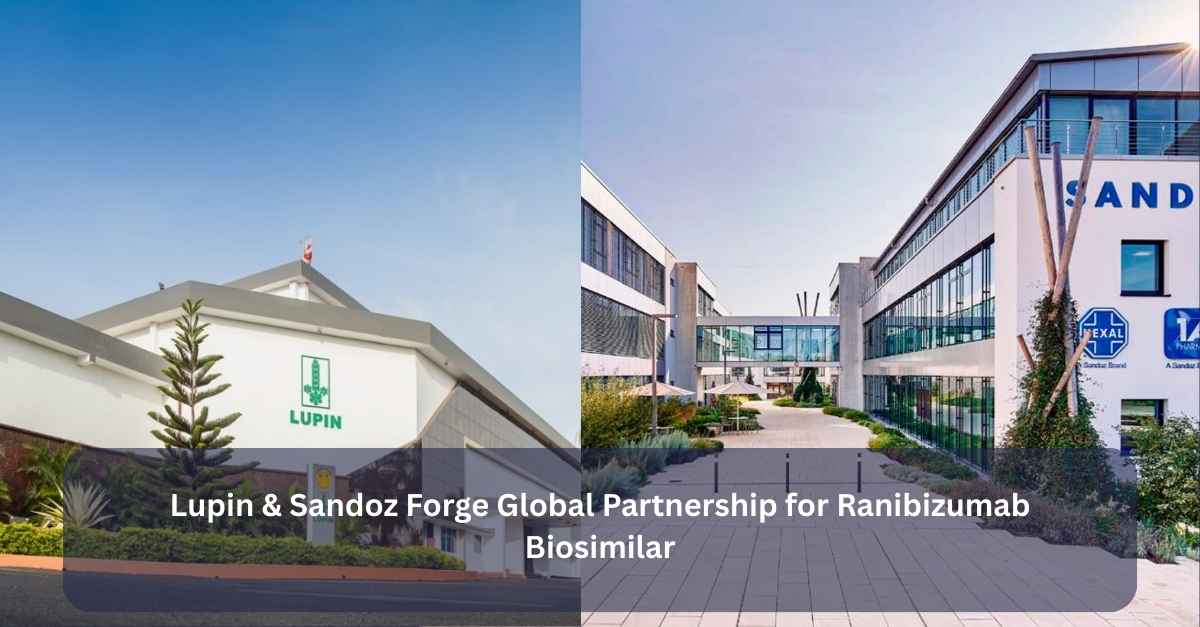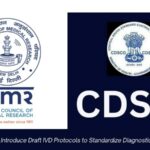12th August 2025, India
August 12, 2025, witnessed Lupin Limited, India’s front-runner pharma player, entering into a historic strategic alliance with Switzerland-based Sandoz Group AG. The alliance is aimed at commercializing Lupin’s biosimilar equivalent of ranibizumab, a complex biologic medicine widely used to treat eye diseases such as wet age-related macular degeneration and diabetic macular edema. The transaction is a significant step for the two firms, as it not only leverages their respective strengths but aims to expand access and affordability of innovative biologic therapies globally.
Under the terms of the agreement, Lupin will retain the responsibility of producing the biosimilar as well as managing regulatory filings in suitable markets. Sandoz, one of the world’s most prominent generic and biosimilar companies, will manage commercialization and marketing which will be for the entire European Union (excluding Germany), Switzerland, Norway, Australia, Hong Kong, Vietnam, and Malaysia. Commercial rights in Malaysia, Vietnam, Australia, and France will be semi-exclusive, i.e., other marketing or licensing entities will also be present there under regulated terms. In all the rest of the mentioned markets, Sandoz will have exclusive rights, i.e., sole rights to establish and market the biosimilar.
Independent of this, a second deal between the two firms awards Sandoz exclusive commercialisation rights in Canada. In Canada, Lupin will remain responsible for manufacturing and preparing regulatory submissions, while Sandoz will handle all downstream commercial activity. These two deals combined extend Lupin’s worldwide reach and offer Sandoz an excellent complement to its ophthalmology biosimilar pipeline, while making more patients eligible for critical treatment at reduced prices.
Product Profile: Ranibizumab Biosimilar (LUBT010)
- Ranibizumab is a recombinant humanized monoclonal antibody fragment of IgG1 against vascular endothelial growth factor A (VEGF-A), which is a protein used in pathological retinal vessel growth.
- It is primarily indicated for eye diseases such as neovascular (wet) age-related macular degeneration (AMD), macular edema following retinal vein occlusion, diabetic macular edema (DME), proliferative diabetic retinopathy, and choroidal neovascularization.
- Lupin’s biosimilar candidate drug, LUBT010 internally coded and marketed under the brand name RaniEyes in India since 2022, has come as an affordable but not less effective substitute for Lucentis.
- The biosimilar has been developed under one single and harmonized global clinical program. Lupin in August 2024 disclosed the success of its global Phase III critical trials with over 600 Indian, US, European Union, and Russian patients enrolled.
These results have opened the door to filings with regulatory bodies in several key geographies, including U.S. Food and Drug Administration (FDA) and European Medicines Agency (EMA) filings. Because biosimilars are held to higher standards based on their molecular composition, the success of this phase III clinical trial has put Lupin in the glare as a strong and trustworthy biosimilar player in a business where true scientific precision is paramount.
Strategic Relevance and Alignment
This partnership is a key strategic match between two companies with complementary strengths. Lupin, as a developer and maker of high-quality medicines, leverages Sandoz’s extensive commercial and distribution infrastructure without incurring the cost of building a salesforce or infrastructure in multiple regions. This enables Lupin to concentrate on what it does best building, producing, and maintaining the quality and regulatory standards of its sophisticated biosimilar pipeline while leaving Sandoz, with its strong presence and brand name in a number of regulated markets, to handle the last-mile market access and outreach.
To Sandoz, the addition of the ranibizumab biosimilar broadens its current biosimilar franchise and supports the increased demand for economical therapies in ophthalmology. Having this drug in its portfolio is an opportunity for the company to provide an attractive, clinically proven substitute for Lucentis, enhancing its specialty care position.
Impact on Stakeholders
The implications of this partnership are extensive and beneficial for value chain constituents. For Lupin, the deal is a key step in achieving its vision of being a global biosimilar leader. It enables the firm to harvest the value of its R&D spend in many high-margin geographies without the cost and risk of establishing commercial presence in each of them. Additionally, the partnership supports Lupin’s reputation as a manufacturer of high-effectiveness, globe-class drugs at low price, especially in specialty therapeutic categories like ophthalmology.
The transaction is of value to Sandoz in providing near-term value to its emerging biologics franchise in biosimilars, in the particular market of retina disease treatment, which has grown strongly worldwide. By providing a clinically validated biosimilar developed to global regulators’ standards, Sandoz provides value to physicians and healthcare providers seeking an alternative to high-cost branded biologic drugs. It also complements Sandoz’s strategic expansion into high-margin specialty drugs, outside of traditional generics.
In addition, payers and government healthcare programs that are grappling with rising costs pressures because of aging populations and higher disease burdens can get relief from the access to high-quality biosimilars. This, therefore, renders the Lupin-Sandoz alliance not only a business proposition, but a public health facilitator.
Final Outlook
The ranibizumab biosimilar will be a top contender in a number of regional markets. Perhaps most importantly, it will make life-altering eye care therapy broadly accessible to millions of patients worldwide. The partnership also sets a precedent for frontier-market pharma businesspeople on how they can collaborate with multinationals that control distribution to acquire commercial traction and genuine healthcare impact.
Broadly speaking, the alliance reflects the shifting pharma partnership dynamics away from merger and acquisition and more toward synergies, cost savings, and providing global access to science-based innovation. Lupin’s strategic gamble on biosimilars, and capacity to deliver at international clinical and regulatory norms, is now yielding returns. Sandoz, with its renewed emphasis on high-value generics and specialty care, will gain dramatically from this value-enhancing addition to its portfolio.










